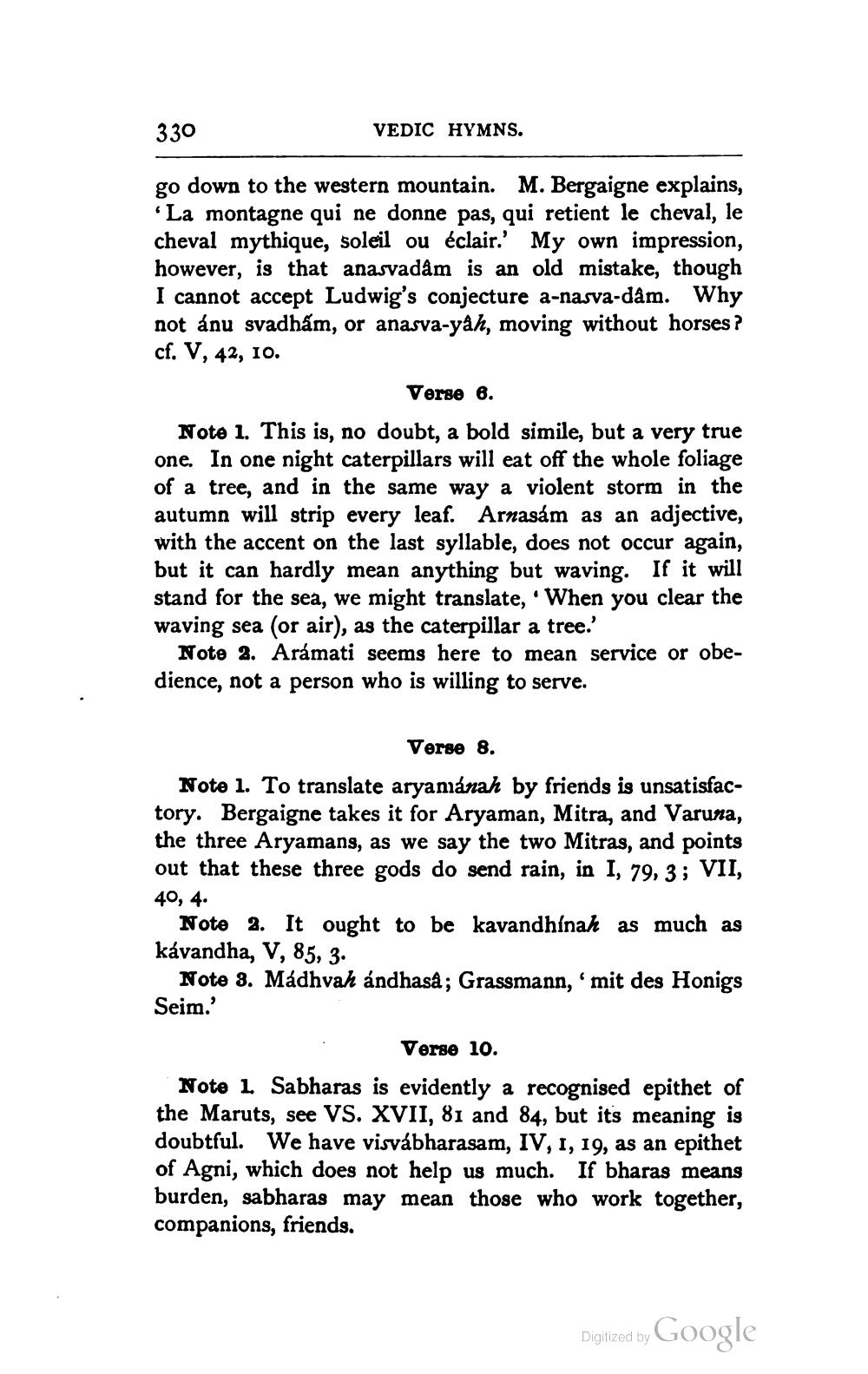________________
330
VEDIC HYMNS.
go down to the western mountain. M. Bergaigne explains, *La montagne qui ne donne pas, qui retient le cheval, le cheval mythique, soleil ou éclair.' My own impression, however, is that anasvadam is an old mistake, though I cannot accept Ludwig's conjecture a-nasva-dam. Why not ánu svadhấm, or anasva-yah, moving without horses? cf. V, 42, 10.
Verse 6. Note 1. This is, no doubt, a bold simile, but a very true one. In one night caterpillars will eat off the whole foliage of a tree, and in the same way a violent storm in the autumn will strip every leaf. Arnasám as an adjective, with the accent on the last syllable, does not occur again, but it can hardly mean anything but waving. If it will stand for the sea, we might translate, When you clear the waving sea (or air), as the caterpillar a tree.'
Note 2. Arámati seems here to mean service or obedience, not a person who is willing to serve.
Verse 8.
Note 1. To translate aryamánah by friends is unsatisfactory. Bergaigne takes it for Aryaman, Mitra, and Varuna, the three Aryamans, as we say the two Mitras, and points out that these three gods do send rain, in I, 79, 3 ; VII, 40, 4.
Note 8. It ought to be kavandhinah as much as kávandha, V, 85, 3.
Note 8. Mádhvah andhasa; Grassmann, mit des Honigs Seim.'
Verse 10.
Note 1. Sabharas is evidently a recognised epithet of the Maruts, see VS. XVII, 81 and 84, but its meaning is doubtful. We have visvábharasam, IV, 1, 19, as an epithet of Agni, which does not help us much. If bharas means burden, sabharas may mean those who work together, companions, friends.
Digitized by
Digilzed by Google




